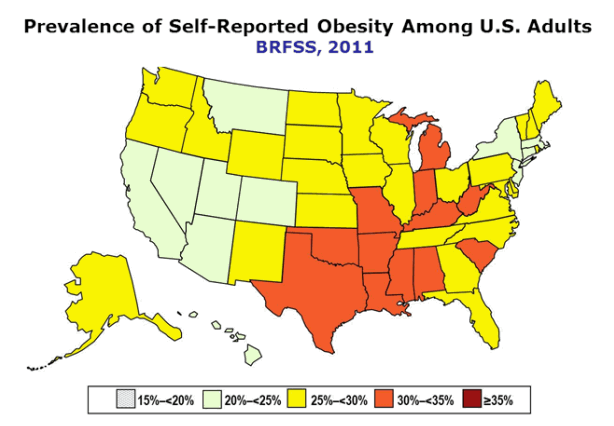Science You Can Use: Some obese women struggle with breastfeeding, but new research suggests it’s not all about physiology.
by Tanya Lieberman, IBCLC | November 30, 2012 6:04 am
 The other day I was doing some looking back at the research on breastfeeding in 2012, and a couple of themes immediately jumped out at me.
The other day I was doing some looking back at the research on breastfeeding in 2012, and a couple of themes immediately jumped out at me.
One was the large number of studies on mother-to-child transmission of HIV - a topic of tremendous importance in the developing world, as this remains a significant source of new infections.
The second topic was the effect of maternal obesity on breastfeeding.
For some time research has drawn a link between maternal obesity and breastfeeding problems. But with the recent rise in obesity among Americans - an estimated 1 in 5 women of childbearing age - there has been a big increase in research on this topic.
Much of the research from 2012 connects the two dots (maternal obesity and breastfeeding outcomes):
Maternal and Child Nutrition: This review found that obese women are less likely to intend to breastfeed and initiate breastfeeding, that they breastfeed for shortened duration, have more milk supply problems, have delayed lactogenesis II (“milk coming in”).
Pediatrics: This study found that mothers who were obese were less likely to meet their breastfeeding intention.
Minerva Ginecologica (Italian): This study found that the incidence of breast-feeding was significantly lower in overweight and obese women compared with lower weight women.
This relationship looks pretty clear in general. But while the focus would naturally shift to physical reasons why breastfeeding is less successful for these women (such as delayed onset of mature milk or underdevelopment of the breast), this year’s research points to some non-physical factors at play:
Obesity: Obesity in adolescence was associated with short breastfeeding duration, but only among low socioeconomic status mothers.
American Journal of Human Biology: “Women with high pre-pregnant BMI have reduced lactation duration that is mediated by lack of comfort/confidence with one’s body“
Oxford University Press: Among primiparae (first time moms), high BMI was associated with nearly double the risk of early cessation of exclusive breastfeeding, but not among multiparae (second+ time moms) who had previous breastfeeding experience and were of higher socioeconomic status.
These findings suggest that biology is not necessarily destiny - modifiable factors like extra support might make a difference.
There are many unanswered questions in this area, and I hope that research in 2013 continues to provide answers.
Source URL: http://www.bestforbabes.org/science-you-can-use-some-obese-women-struggle-with-breastfeeding-but-new-research-suggests-its-not-all-about-physiology